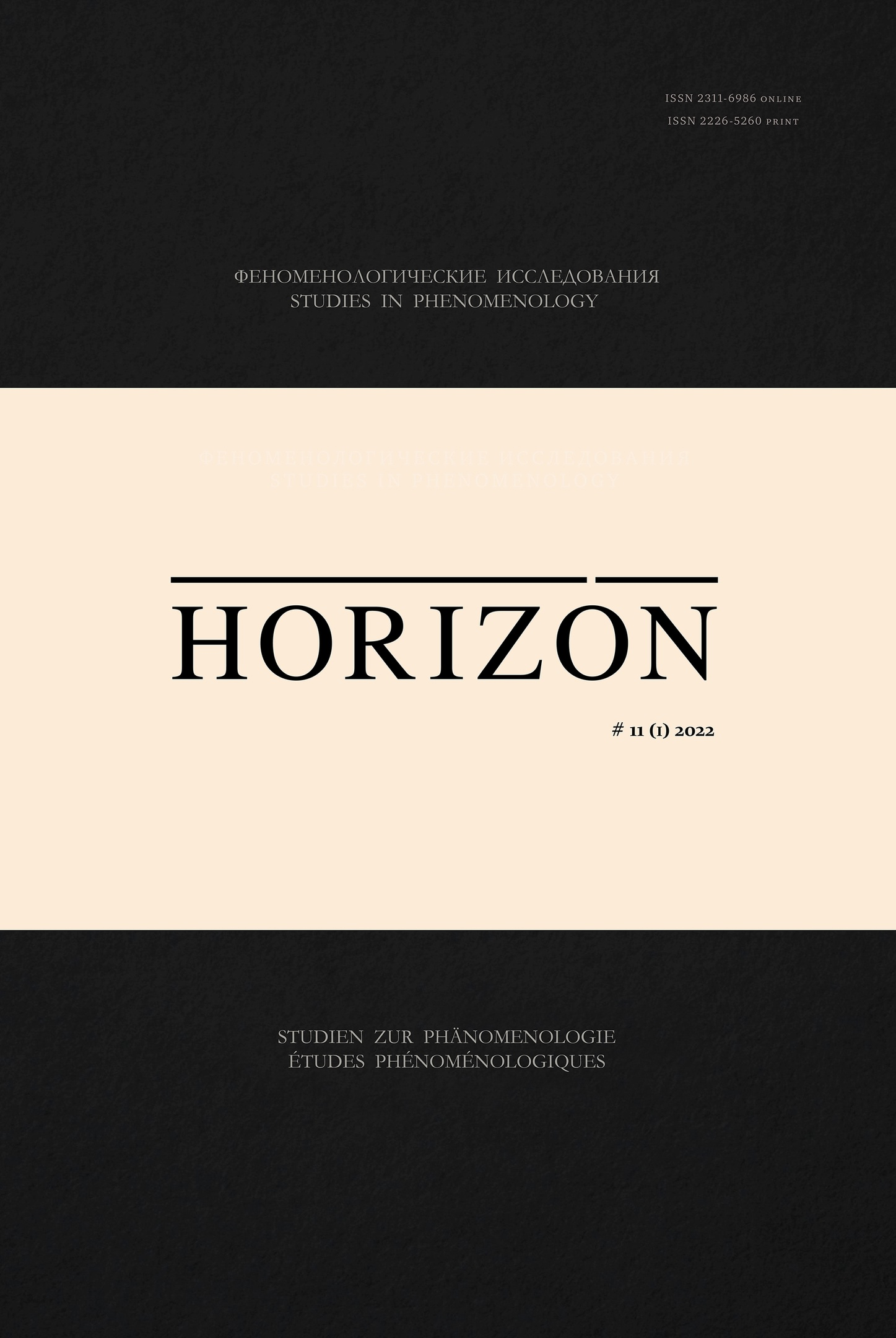ТЕМПОРАЛЬНОСТЬ «ПОРИСТОЙ САМОСТИ» ДЖ. РИВЕРЫ
TEMPORALITY OF THE “POROUS SELF” BY J. RIVERA
Author(s): SERGEI KOMAROV, DARYA KHOMUTOVASubject(s): History of Philosophy, Philosophical Traditions, Phenomenology
Published by: Издательство Санкт-Петербургского государственного университета
Keywords: porous self; double entry; retention; protention; memory; Augustine; Husserl; interiority; exteriority; double intentionality;
Summary/Abstract: The article analyzes the philosophical concept of the “porous self ” of J. Rivera. The originality of this concept in the post-phenomenological project is determined by the role of theological constructions that modify the primal experience of self-consciousness. This modification allows us to interpret the phenomenological description of the human self as different from the classical — “porous” temporality, i.e., correlating through “two entrances” — the internal and external — with eternity. Within this approach, the primary phenomenon of the constitution of the “porous” self becomes the inner word(Verbum interior), which in the appeal to eternity turns out to be the original self-awareness of the self as a temporality. The secondary phenomenon of the constitution of the “porous” self is not the mundane temporality of M. Heidegger, but Epektasis as an intense striving towards the end of time in General. The worldly temporality of the self, transformed by faith, is phenomenologically revealed as open to eternity in each of its moments. The third phenomenon of the temporality of the self is Memoria, whose interpretation reveals how the structure of the inner consciousness of time by E. Husserl can beframed ontologically and harmoniously integrated into the theological concept. The article shows how,based on this understanding of both the internal and external openness of the “porous” self for eternity,the integral structure of its temporality is formed. The temporality of the porous self is a modificationof Husserl’s time diagrams and the intertwining of two streams of temporality at the same time frompast to future and from future to past, which itself constitutes a phenomenal field of events of self. Thisunderstanding of temporality sets new perspectives for the phenomenological analysis of subjectivity.
Journal: Horizon. Феноменологические исследования
- Issue Year: 11/2022
- Issue No: 1
- Page Range: 248-275
- Page Count: 28
- Language: Russian

